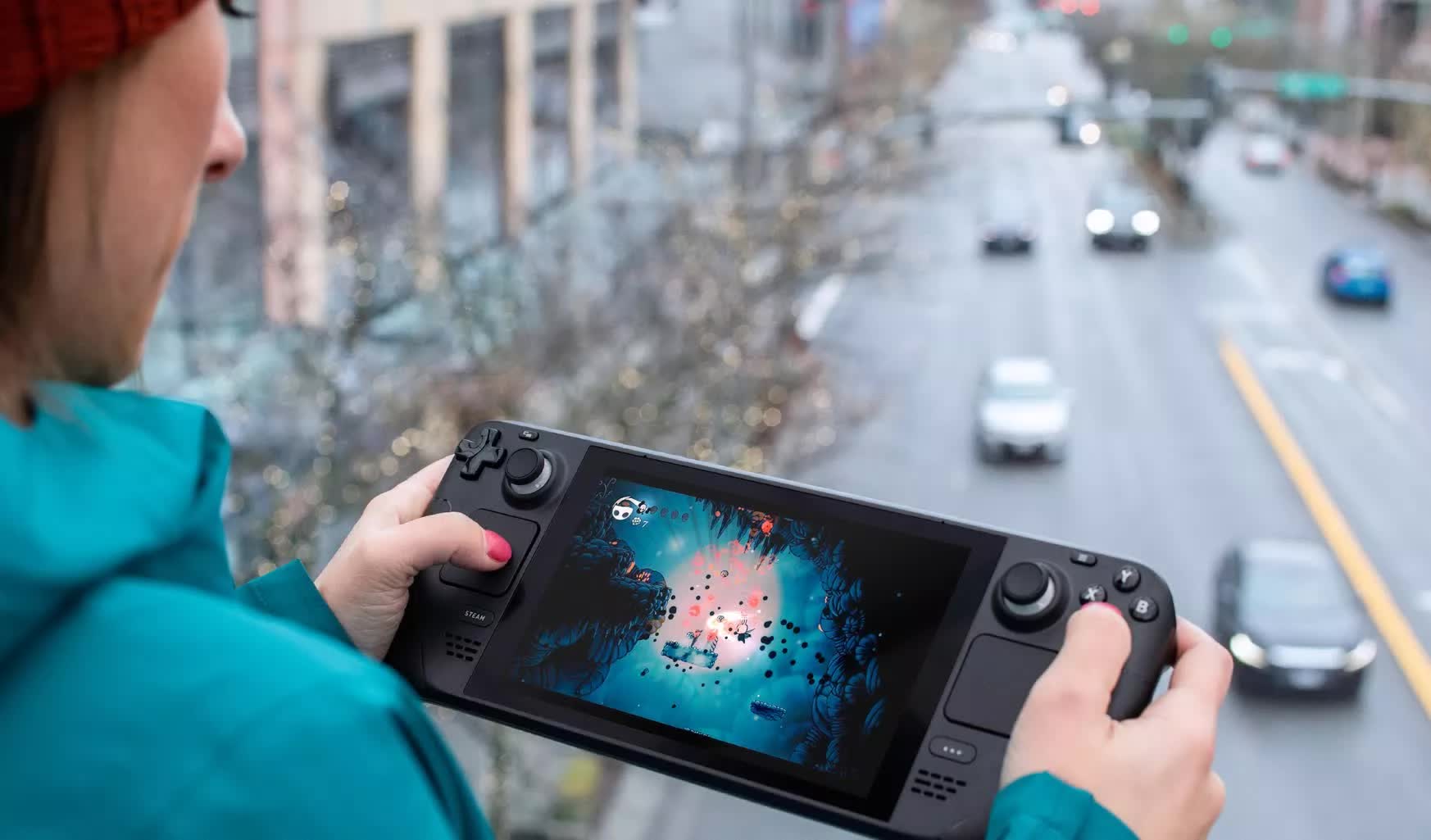Serving tech enthusiasts for over 25 years.
TechSpot means tech analysis and advice you can trust.
Forward-looking: Valve is making it clear that they’re not interested in releasing yearly updates with only minor upgrades for its handhelds. For the Steam Deck follow-up, they have something much bigger in mind: a “generational leap” in performance without sacrificing battery life.
In a recent interview, Valve’s Lawrence Yang rejected the idea of bumping specs annually like some competitors. He said the company has no plans to release new versions of the same console each year, as they don’t see a reason to do so. Yang argued that rushing out frequent refreshes with only slight improvements is “unfair” to consumers who recently purchased the previous model.
Instead of this kind of minor annual tune-up, Valve intends to hold off until there is a genuine generational jump in power before releasing the Steam Deck 2, according to Yang. He confirmed they aim to wait for a significant compute upgrade that doesn’t compromise battery life before shipping a true second generation.

The original Steam Deck launched back in February 2022, powered by the AMD Zen 2 4c/8t CPU. While it did receive an upgrade November 2023 in the form of an OLED version, the improvements were mostly limited to the display and battery.
That’s not to say that Valve is resting on its laurels, waiting for the next major mobile APU release from AMD/Intel. In a separate interview with Press Start, Yang teased that work on a Steam Deck sequel is officially underway and that they will apply “learnings” from the original model.
As for when this generational leap will actually arrive, the timing remains uncertain, but there are some potential clues on the horizon. AMD’s all-new Zen 5 CPU architecture and RDNA 3.5 GPU silicon are expected to debut in upcoming gaming handhelds soon. With those chips now available, anticipation is building for the Ryzen Z2 series.
Valve’s ambitions extend beyond hardware, though. The company is taking steps to enhance the overall gaming experience for Deck owners and potentially the broader PC gaming community. For instance, the Arch Linux team recently announced a collaboration with Valve to streamline the Arch Linux distribution that powers SteamOS.
Additionally, Valve seems interested in expanding the reach of SteamOS to garner more developer support, with hints suggesting that a general SteamOS distribution release could be in the works.




